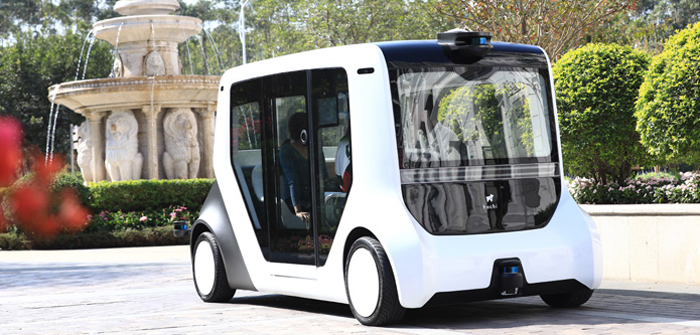Passengers of driverless cars may need to be trained not to suffer motion sickness, members of the UK’s Intelligent Transport Systems (ITS) were told.
Meeting at the University of Warwick, the User Behaviour Forum heard that activities including reading or emailing could induce motion sickness for a significant number of people.
Joseph Smyth from WMG, University of Warwick, explained that all participants experienced motion sickness while reading as a passenger. This, according to Smyth, cast doubts on occupant-focused benefits trumpeted for the technology.
He said the only activities that did not induce sickness were sleeping or looking out of the window.
Smyth’s research found that cognitive training tasks were effective in reducing motion sickness by more than 56% in the first instance.
Other research looking at visual, audible and haptic motions to overcome motion sickness are underway.
Smyth suggested that without addressing motion sickness, the benefits of driverless vehicles may not be as valuable as expected.
Forum chair Siddartha Khastgir of WMG, University of Warwick, says designers of transportation solutions must concentrate on the user and not get caught up in the design.
He said, “This meeting gave us a sobering reminder that human beings might well not react in the way that we would like and it’s up to us to change our focus to take their needs and personalities into account.”
Jennie Martin, ITS (UK) general manager, added that there are plenty of forums concentrating on technology, but the User Behaviour Forum is vital to giving the work a human context.
She said, “Although this meeting largely concentrated on driverless technology, the forum’s remit is for all aspects of user behavior around transport, so I look forward to many more meetings discussing a range of reactions to ITS innovations.”


